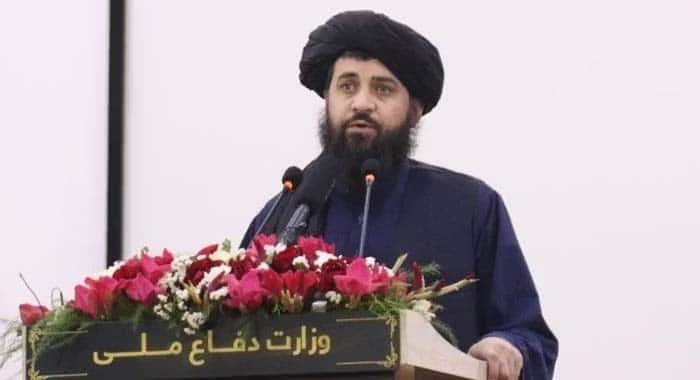On August 19, marking the 106th anniversary of Afghanistan’s independence, Taliban Defence Minister Mullah Yaqub delivered a speech in which he hailed the significance of Afghan sovereignty, warning that past failures to safeguard freedom must not be repeated. However, his claims of unity and peaceful intentions ring increasingly hollow in light of recent developments, especially regarding the Taliban’s growing role in patronising, arming, and funding the Tehreek-e-Taliban Pakistan (TTP).
Yaqub’s speech, on the surface, may have sounded like an appeal for national unity: “This time, conditions should not be created that, God forbid, we lose this freedom,” he stated, urging unity under “Islam and Afghan identity” while cautioning against internal prejudice. But beneath the rhetoric of “unity” and “Islamic identity,” his repeated assurances that the Taliban has “no ill intentions” toward any nation seem increasingly disconnected from the facts on the ground.
Despite Yaqub’s words, credible reports have surfaced confirming that the Taliban has been directly supporting and arming the TTP, the banned militant group responsible for countless attacks within Pakistan. Intelligence and security agencies have uncovered evidence that the Taliban has provided the TTP with funding, training, and even advanced weaponry, including night-vision gadgets, gear not easily obtained by any group outside of state-backed entities.
Further compounding these contradictions, recent security operations in Afghanistan’s tribal districts, particularly in Bajaur, have led to the neutralisation or capture of several Afghan militants linked to the Taliban’s affiliates. This ongoing military action only highlights the Taliban’s unfulfilled promises to the international community, in which they had pledged to halt their support for terrorist factions and maintain peace across the region. Instead, they continue to harbour and even empower groups that fuel violence both within Afghanistan and across its borders.
Yaqub’s promise that the Taliban “want to have good relations with the entire world” appears increasingly far-fetched, especially when their actions suggest otherwise. Foreign interference has long been a point of contention for the Taliban, but it is hard to ignore the fact that their growing influence over the TTP and their assistance in destabilizing the region are, in many ways, a form of interference in Pakistan’s internal affairs, a violation of the very principles Yaqub claimed to uphold.
In this light, Yaqub’s call for “vigilance” against “foreign conspiracies” and his assertion that the Taliban will not serve foreign powers rings increasingly cynical. The reality on the ground suggests that the Taliban’s actions are not only creating instability in Afghanistan but also actively contributing to the export of violence and terrorism in the broader region.
As the Taliban continues to show their true colours, Mullah Yaqub’s words about unity and peace now seem like empty promises, one of many contradictions in a movement that claims to fight for Afghan sovereignty while simultaneously supporting groups that undermine regional peace and security.





